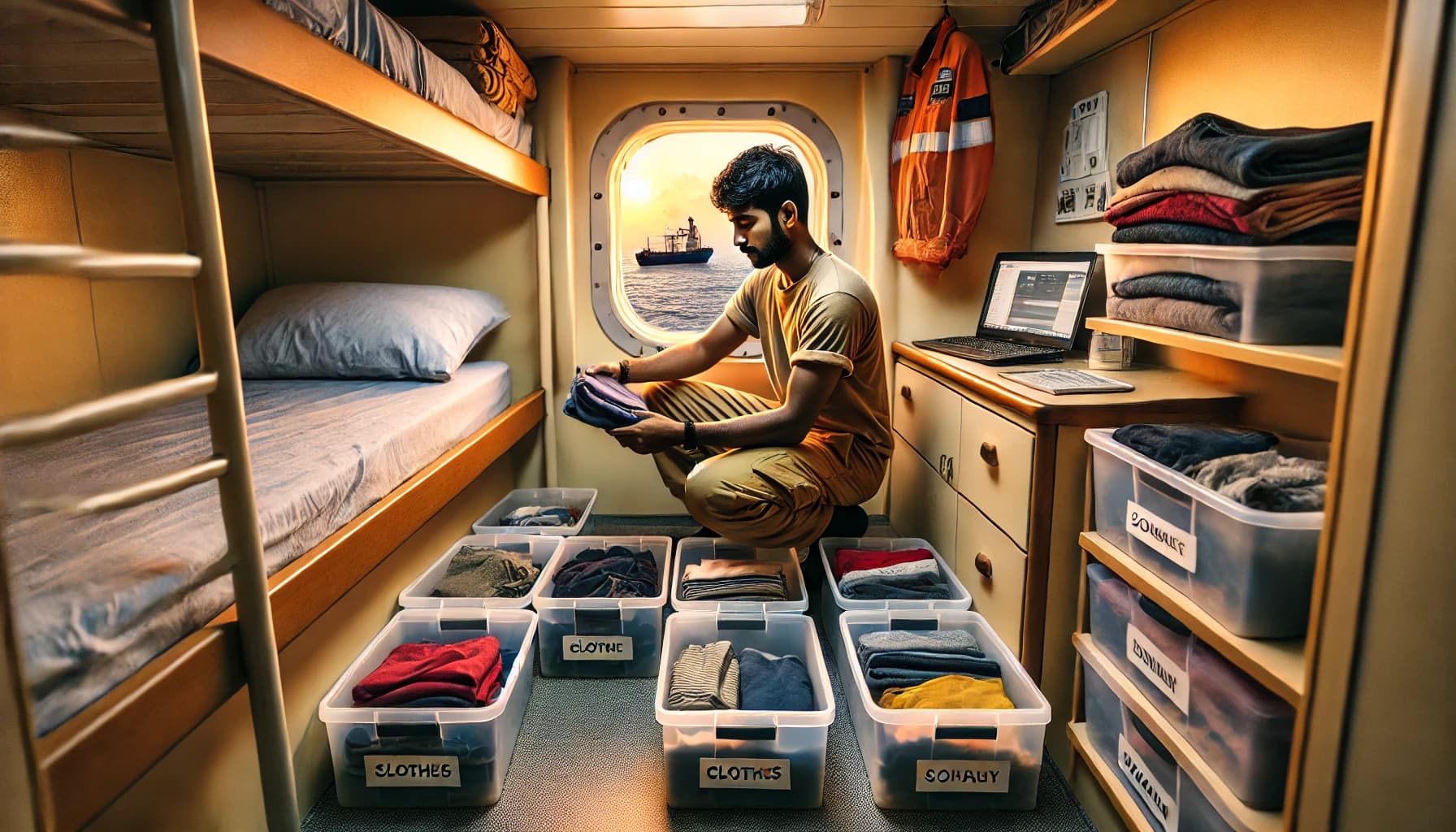Good communication is crucial when working in jobs at sea - both among the crew and for staying in touch with family and friends ashore.
Obviously these are two very different types of communications: taking or giving orders from or to the seafarer ranks above or below you is very different to having a conversation with your loved ones on land.
But when you’re busy, tired, stressed or simply ‘not in the mood’ maintaining quality communication can be difficult.
That’s why in this blog post we’re going to take a look at ways those working in seafarer jobs can make sure they’re communicating well with the folk back at home.
Read more: 10 Valentine's Day Ideas for Seafarers & Their Partners
Working away from family is tough but it can be hard on those who are at home too. So we’ll also throw in some tips for anyone who is wondering how to cope with a husband working away - or a wife, parent, son or daughter - to make sure they’re getting across everything they want to say too.

It can be hard to put into words how much regular contact means to anyone who is working away from family. It really can be the difference between having a good day and a bad one.
Just a few words from a partner or child at the end of a tough shift or watch can make all the difference. It’s a lifeline and a reminder that reality exists. But great communication can come with its own set of challenges.
How can families communication better when someone works at sea?
One thing for anyone to remember is that no matter whether you’re working in a seafarer job or whether you’re at home thousands of miles away, is that you should be present when you’re talking to your loved ones:
- You’re speaking and saying words - but are you really talking?
- You send an SMS, instant message or email - but are you actually saying anything?
We’re all so busy and so used to sending quick texts that don’t really say anything that it can be easy to forget how to actually communicate.
But apart from our own communication issues as human beings, obviously as anyone working in a seafarer’s job will know, technology and distance can also create problems.
Read more: How to Cope with Bad News When You're Working at Sea
It is necessary for those on land to realize that there may be some days onboard when the internet signal isn’t working and your loved one who is working in a job at sea just won’t have the same means of communication at their disposal that you do.
Keep your relationship alive through better communication
We’ve already covered how to make sure your life at sea isn’t impacting on your relationship. For a refresher, check out Jobs at Sea & Practical Tips for a Healthy Relationship
But as we all know (and as those blog posts will tell you!) communication is a massive part of any healthy relationship: the point is, how good is that communication?

Staying in touch through social media is great for a quick check-in but real communication is more than a quick emoji on your spouse’s latest Facebook post.
And that goes for whether you’re the spouse at sea or the spouse on land!
Read more: How to Use Social Media Wisely When You Work in Jobs at Sea
So what is ‘real’ communication? Whether it’s checking in by Skype or Facetime, or by sending emails (or even letters or cards if the situation allows for it) ‘real communication’ involves taking the time to sit down and have a proper conversation - whether it’s verbal or written.
PS, why not follow us on Facebook, LinkedIn and Twitter / X!?
Here are a few do’s and don’t to help you up your communication game.
When calling by Skype or other video chat
Do: Make sure you plan a time that’s convenient for both of you, whether you’re the one working in a seafarers job or the one running around at home doing chores, doing the grocery shop, and/or working your own job.
You’re not going to be able to have a quality conversation and catch up on life if one of you has to be on watch in ten minutes time or the other is trying to look after the kids while chatting!
Don’t: Let frustration over connectivity issues cloud your conversation. It’s true that video calling can be awkward at the best of times - even when both parties are on land. But if your entire chat is peppered with “Can you hear me?” and fuzzy screens it might be best to reschedule, or even send an email instead.
And don’t forget that if you’re speaking to an older family member they might not be as technically minded as you!
When sending an email or social media message
Do: Remember that if you’re on land, you probably have 24/7 access to the internet and a fairly stable connection.
The same can’t be said for anyone working in a seafarer’s job while they’re thousands of miles off shore. Therefore don’t be upset or concerned if your messages aren’t replied to straight away. In these days of social media messaging, rapid lightning responses are the norm. Those working at sea might not have that luxury.
Do: Keep the communication flowing - whichever party you are. Sending an email, whether on a daily basis, or as often as connections allow for is a great way of checking in and feeling closer to your partner and children, if you have them.

Whether you’re ashore or onboard it’s always good to hear what the other person is up to - even if it’s just the daily norm.
And that includes friends and extended family too: whether you’re a seafarer, or you have a friend working in a job at sea, a “hello and how are you doing?” once in a while is always appreciated. Especially if it’s a special time of year: birthday, Christmas, other religious festivities and special days etc.
Read more: International Family Day: Staying Connected in Jobs at Sea
Do: Share photos. If you’re at home, send a picture of the family, the dog, something funny you’ve spotted in your neighborhood - anything lighthearted. It will make your seafarer smile while they’re away - and give them something to share with fellow crewmates.
If you’re at sea, for those ashore who may be wondering exactly what is a seafarer's job and what does it entail, sending a picture is a chance to show them the ins and outs of your daily life.
Don’t: Send too many photos - especially if you’re the one at home. It’s one thing keeping the one who is working away from family up-to-date but there can be such a thing as overkill.
If the person away in a job at sea is constantly being flooded with happy images of you all getting along just fine without them, it could enhance the feelings of homesickness, rather than have the opposite effect.
Also bear in mind that their downloading speeds may not be super fast either! Only send a couple of pics at a time and use a low resolution.
Don’t: Forget to reply when you receive an email or message. Simple as that! It can be easy for the other party to think you’re not replying for a reason and start creating scenarios in their head, even if the reality is you’re just too busy and you put off sending a reply right away.

Hearing from loved ones when working in a seafarers job can help alleviate homesickness. And for friends and family at home, it’s always welcome to hear that their hardworking loved one is safe at sea.
Working away from family can be tough
No matter if you’re a wife wondering how to cope with a husband working away, a seaman or seawoman working in entry level cargo ship jobs and wondering how you’re going to handle working away from family for the rest of your career, just know that with thoughtful and frequent communication it will be a whole lot easier.
The main thing to remember is that communication is a two-way street (or shipping channel!) and it is in everyone’s best interests for their mental health and wellbeing to take that to heart and treat it as an important part of being a unit in which one of you is working away from family.

Eve Church
Eve is Martide's content writer, publishing regular posts on everything from our maritime recruitment and crew planning software to life at sea. Eve has been writing professionally for more than two decades, crafting everything from SEO-focused blog posts and website landing pages to magazine articles and corporate whitepapers.
UK

is the only site for maritime jobs




